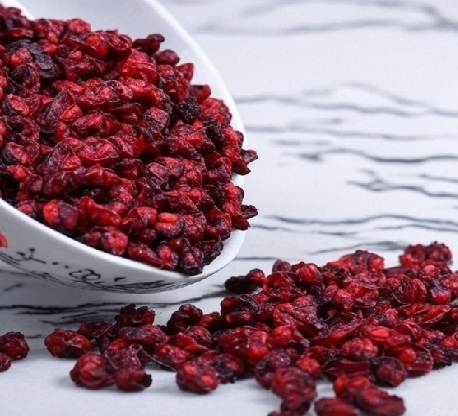Schisandra Berries

Schisandra Berries (Wu Wei Zi): A Five-Flavor Tonic for Energy, Focus, and Longevity
Introduction
Schisandra berries, known as Wu Wei Zi (五味子) in Traditional Chinese Medicine (TCM), are an extraordinary adaptogenic herb cherished for their unique combination of all five flavor profiles—sour, bitter, sweet, pungent, and salty. This complexity makes Schisandra a powerful harmonizer in herbal formulas, supporting the Heart, Lung, Kidney, Liver, and Spleen meridians. It is widely used to stabilize and retain essential energies, sharpen mental focus, enhance endurance, and promote graceful aging. Both as a tonic and a protective herb, Schisandra is a dynamic addition to any wellness routine.
What Is Schisandra Berries?
Wu Wei Zi comes from the fruit of Schisandra chinensis, a climbing vine native to China, Korea, and parts of Russia. In TCM, it is considered warm in nature and enters the Heart, Lung, Kidney, and Liver meridians. Schisandra is best known for its ability to astringe or “hold in” the body’s vital essences—such as qi, blood, and fluids—making it ideal for preventing leaks like excessive sweating, chronic coughing, or spermatorrhea. It is also used to boost mental clarity, calm the spirit, improve liver function, and enhance resilience to stress.
Health Benefits of Schisandra Berries
1. Astringes Qi and Preserves Essence
Schisandra is renowned for stabilizing and containing leakage of lung qi (e.g., chronic cough) and kidney essence (e.g., night sweats, frequent urination), helping conserve energy.
2. Enhances Mental Focus and Adaptability
It improves mental clarity, concentration, and memory, particularly in those with fatigue or burnout. As an adaptogen, it helps the body better cope with physical and emotional stress.
3. Nourishes and Protects the Liver
Wu Wei Zi is often used to support liver detoxification, protect hepatocytes, and treat hepatitis-related symptoms. It is highly regarded for its regenerative effects on liver tissue.
4. Tonifies the Kidneys and Supports Sexual Health
By preserving jing (essence) and strengthening kidney function, Schisandra is used in formulas to support reproductive health, especially in cases of low libido or exhaustion.
5. Calms the Heart and Shen (Spirit)
It is a traditional herb for calming the mind, easing anxiety, and promoting restful sleep—especially when the spirit is disturbed by deficient Heart and Kidney yin.
How to Use Schisandra Berries
1. In Herbal Decoctions or Tonics
Use 3–9 grams of dried Schisandra berries simmered with herbs like goji berries, licorice, or ginseng. Simmer for 30–40 minutes to extract its beneficial compounds and tart-sweet flavor.
2. In Herbal Teas
Brew on its own or in combination with calming or detoxifying herbs. It pairs well with chrysanthemum, reishi, or rose for liver and emotional balance.
3. In Powder or Capsule Form
Available as powders or standardized extracts, Schisandra is often taken as a daily adaptogenic supplement. Look for concentrated formulas or mixed adaptogen blends.
Where to Buy Schisandra Berries
You can find Wu Wei Zi at the following places:
- Chinese herbal medicine shops
- Health food stores or TCM apothecaries
- Online retailers such as iHerb, Amazon, or specialty East Asian herbal stores
Look for:
- Whole dried berries with a dark red or purplish hue
- Organic or wild-harvested labeling
- Verified purity, lab-tested for safety
Are There Any Side Effects?
Schisandra is generally very safe and well-tolerated. In some rare cases, high doses may cause digestive upset or heart palpitations. It is not recommended during acute infections with excess heat or in pregnancy without practitioner guidance. As with any potent herb, consult a qualified practitioner if you have a medical condition or are taking medications.
Conclusion
Schisandra berries, or Wu Wei Zi, are a treasured five-flavor tonic used in TCM to conserve energy, improve focus, nourish the liver and kidneys, and calm the spirit. As both a daily adaptogen and restorative herbal ally, Schisandra offers broad-spectrum support for stress resilience, mental clarity, and long-term wellness.
FAQs
Can I take Schisandra berries every day?
Yes, Schisandra can be taken daily in teas or supplements to support energy, focus, and liver function.
What do Schisandra berries taste like?
True to their name, Wu Wei Zi (“five-flavor fruit”) has a complex taste that is sour, sweet, bitter, pungent, and salty all at once.
Is Schisandra safe for children?
It may be used for older children under the guidance of a qualified herbalist, especially for attention, respiratory, or immune support.

